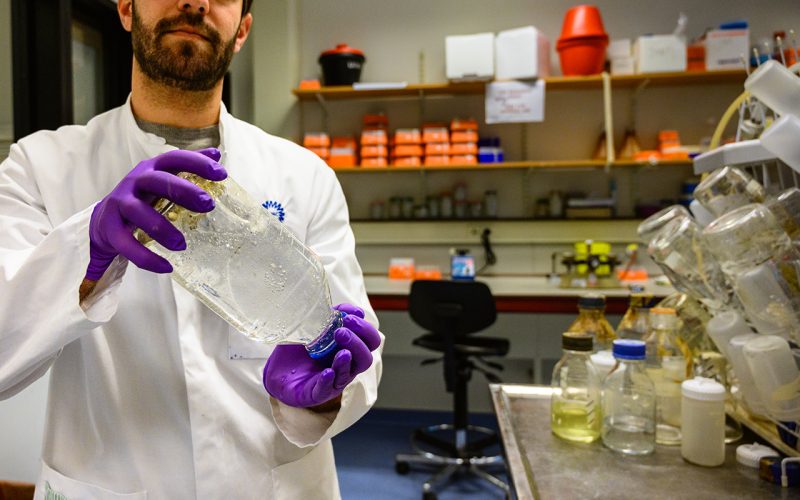The teams of three principal investigators from UMC Utrecht have been awarded prestigious ERC Proof of Concept grants. The recipients are the groups led by Hester den Ruijter, Ynte Ruigrok, and Joost Sluijter. With this funding, they can bring their scientific discoveries closer to practical application.
The ERC Proof of Concept grant is a subsidy from the European Research Council (ERC), designed to support researchers in translating fundamental research into practical applications. The goal is to further develop promising research outcomes and bring them closer to societal use, for example, through prototypes, patents, or collaborations with industry. Thanks to this funding, the three research teams can further develop their innovative ideas. These are the projects:
Hester den Ruijter and her team are working on an innovative blood test to aid in the early detection of coronary heart disease in both men and women. This proposal was co-written by Tim Sakkers, who also plays a key role in the research. Coronary heart disease is often diagnosed too late in women because its symptoms and progression differ from those in men. This blood test uses cell-free DNA methylation biomarkers released by atherosclerotic plaques. It provides physicians with insights into plaque condition while accounting for gender differences. The test is affordable, easy to use, and has the potential to be widely implemented in primary care without requiring hospital visits. Additionally, the test may eventually detect other heart-related conditions, such as INOCA (ischemia with non-obstructive coronary arteries).
Ynte Ruigrok’s team is focused on finding a non-invasive treatment for brain aneurysms to prevent fatal brain hemorrhages. PhD candidate Jos Kanning, co-supervised by Associate Professor Mirjam Geerlings from Amsterdam UMC and Assistant Professor Shahab Abtahi from Utrecht University, played a crucial role in identifying five commonly prescribed medications associated with a reduced risk of aneurysm-induced brain hemorrhages: lisinopril, amlodipine, tamsulosin, simvastatin, and metformin. These medications target the TGF-β pathway, a molecular mechanism essential in vascular diseases. The research combines genetic and epidemiological data to validate the efficacy of these drugs and examines differences between men and women. The ultimate goal is to develop a safe and affordable treatment to prevent aneurysm ruptures, offering an alternative to invasive procedures.
Joost Sluijter’s team is exploring a promising new method to deliver medicines in the body using extracellular vesicles. These microscopic ‘packages’ naturally transport materials between cells and offer unique advantages over traditional drug delivery methods. Using virus-like, self-assembling proteins, the team is working on a more precise and efficient system to deliver drugs directly to the right location in the body. Assistant Professor Zhiyong Lei, postdoc Nazma Ilahibaks, and PhD student Songpu Xie each contribute significantly to this project. The goal? To develop a production process that is not only effective but also affordable and scalable.
The European Research Council (ERC) is the primary European funding organization for innovative scientific research. The organization is led by an independent governing body, the Scientific Council. Through its additional Proof of Concept funding scheme, the ERC helps European scientists bridge the gap between groundbreaking research and the initial stages of commercialization. These projects have the potential to drive meaningful changes in healthcare and science.
